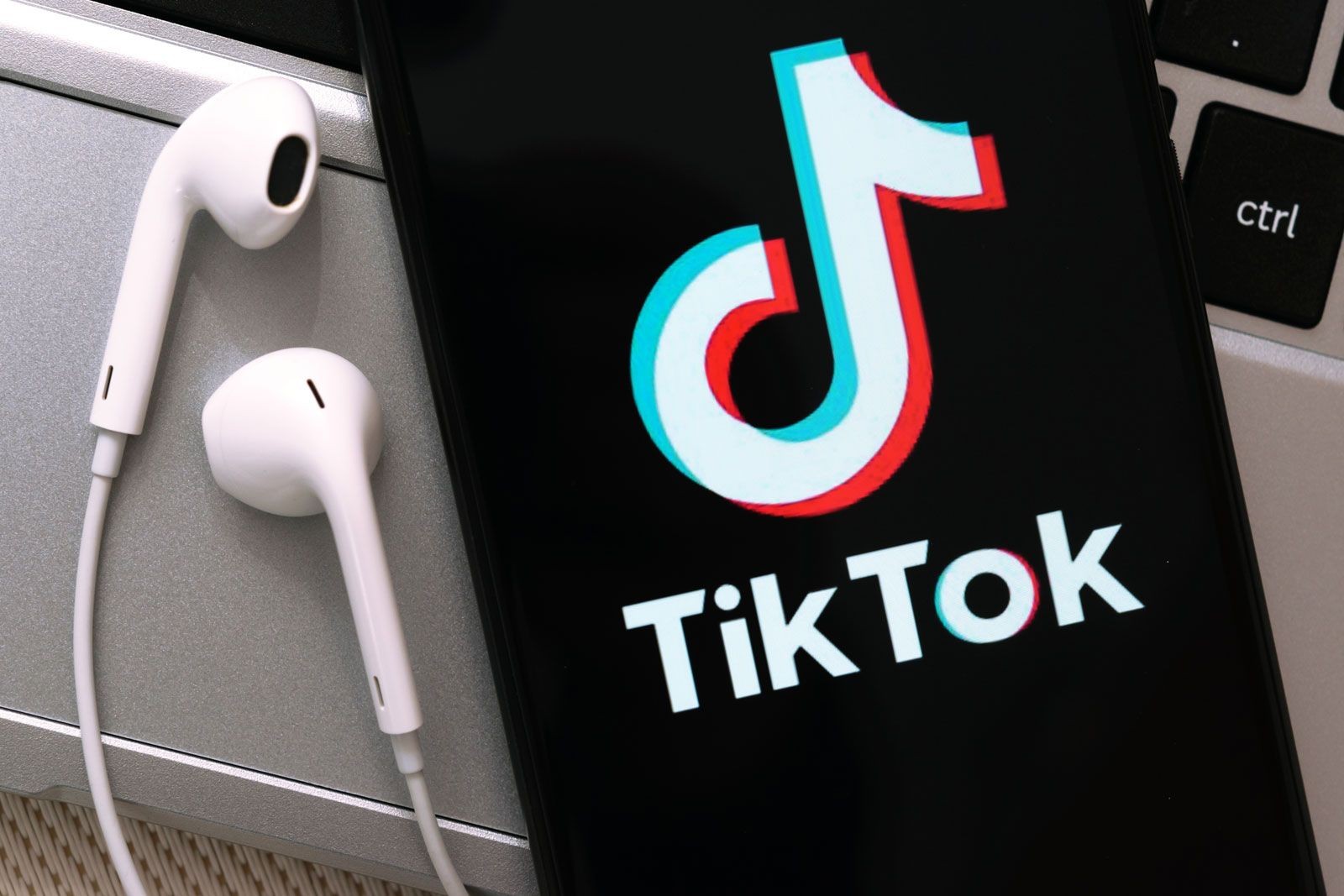TikTok has exploded onto the global stage, captivating billions with its addictive feed of short-form videos. From viral dances and comedic skits to educational snippets and breaking news, the platform has become a cultural phenomenon. Yet, beneath the surface of entertainment and connection, a storm of controversy is brewing, centered around a critical question: Why Should Tiktok Be Banned?
This question has ignited intense debate across the globe, particularly in Western nations. Governments, tech experts, and everyday users are grappling with the implications of this Chinese-owned social media giant’s pervasive influence. Is TikTok merely a harmless source of entertainment, or does it pose a significant threat to national security, data privacy, and even societal well-being?
This article delves into the multifaceted arguments surrounding a potential TikTok ban. We will explore the core concerns driving the push for prohibition, examining the claims of national security risks, the spread of misinformation, and the broader geopolitical tensions that fuel the debate. Conversely, we will also consider the counter-arguments, questioning whether a ban is justified, democratic, or even effective in addressing the issues at hand. By presenting a balanced overview of the pros and cons, we aim to provide a comprehensive understanding of this complex and increasingly urgent issue.
 TikTok App on Smartphone
TikTok App on Smartphone
A smartphone displays the TikTok application, a globally popular yet controversial social media platform.
The Case for Banning TikTok: Unpacking the “Pro” Arguments
The movement to ban TikTok is not arbitrary. It is rooted in a series of serious concerns raised by security agencies, lawmakers, and concerned citizens alike. These arguments, while varied, coalesce around a central theme: the potential dangers posed by a platform controlled by a foreign entity, particularly one with close ties to the Chinese government.
National Security Threat: A Digital Gateway for Espionage and Propaganda?
One of the most prominent and alarming arguments for banning TikTok centers on national security. The concern stems from TikTok’s parent company, ByteDance, being subject to Chinese law, which compels companies to cooperate with state intelligence agencies. This legal framework, particularly the 2017 National Intelligence Law in China, raises fears that user data collected by TikTok could be accessible to the Chinese Communist Party (CCP).
Critics argue that this access could be exploited in several ways. Firstly, sensitive user data, including browsing history, location data, and even biometric information, could be harvested for intelligence purposes. This data could potentially be used to identify and recruit spies, blackmail individuals of interest, or gain insights into critical infrastructure and government operations.
Secondly, there are fears of algorithmic manipulation. The highly sophisticated algorithms that power TikTok’s “For You” page could be subtly altered to promote pro-China propaganda or suppress content critical of the CCP. This could be used to influence public opinion, sway elections, and shape international policy in ways that benefit China’s geopolitical interests, forming a digital extension of China’s “Digital Silk Road” initiative aimed at expanding its global influence.
Former U.S. Representative Mike Gallagher emphasized the urgency of this issue, stating, “The U.S. government cannot ignore TikTok as a potential national security threat, even if efforts to crack down on the company alienate a generation of future voters… We have to deal with it before it’s too late.” This sentiment reflects a bipartisan consensus in Washington D.C. that the potential risks are too significant to ignore.
A Breeding Ground for Misinformation and Harmful Content
Beyond national security, another significant argument for banning TikTok revolves around the platform’s struggle with misinformation and harmful content. Studies have indicated a substantial percentage of videos on TikTok contain misinformation, ranging from health hoaxes and dangerous “DIY” tutorials to political disinformation and extremist propaganda.
The short-form video format, while engaging, can also be conducive to superficial processing of information. Researchers have noted that the immersive and relatable nature of TikTok videos can lead users to lower their guard and accept misinformation more readily. This is particularly concerning given TikTok’s popularity with younger audiences, Gen Z in particular, who increasingly use the platform as a primary search engine, sometimes even replacing traditional search engines like Google for information discovery.
Furthermore, TikTok has been criticized for promoting dangerous “challenges” that have resulted in injuries and even deaths. From the infamous “Tide Pod challenge” to the deadly “Blackout challenge,” these trends demonstrate the platform’s potential to amplify harmful behaviors, especially among impressionable young users. While TikTok has implemented safety measures and content moderation policies, critics argue that these efforts are insufficient to mitigate the inherent risks.
Claire Wardle, co-director of the Information Futures Lab at Brown University, highlights the inadequacy of content moderation alone: “We shouldn’t be playing Whac-a-Mole with every individual piece of content, because it feels like we’re playing a losing game and there are much bigger battles to fight. But this stuff is really dangerous… Banning TikTok is much more effective than the ‘Whac-a-Mole’ approach to misinformation.”
Taking a Tough Stance Against China: A Geopolitical Imperative
The call to ban TikTok is also intertwined with broader geopolitical tensions and a growing sentiment for a “tough on China” approach. China is increasingly viewed by many in the West as a strategic competitor, if not an adversary. Concerns about China’s human rights record, its assertive foreign policy, and its growing economic and military power fuel this perspective.
Proponents of a ban argue that restricting TikTok is a necessary step in safeguarding U.S. interests and values in the face of China’s rising influence. They point to incidents like the Chinese spy balloon incident and the arrests of individuals operating illegal Chinese police stations in the U.S. as evidence of China’s espionage activities. In this context, a TikTok ban is seen as part of a broader strategy to push back against China’s perceived aggression and protect national security.
Senator Mitt Romney, a sponsor of legislation targeting TikTok, articulated this viewpoint: “Congress has recognized that the Chinese Communist Party is not our dear friend… We have to recognize that we face geopolitical adversaries that are serious and threaten our security, our prosperity, and even the peace and freedom that we enjoy.” For those who subscribe to this view, banning TikTok is not just about one app; it is about sending a strong message to China and protecting national interests in a competitive global landscape.
The Counter-Arguments: Why a TikTok Ban Might Be Unjustified and Ineffective
While the arguments for banning TikTok are compelling, there is also a robust counter-narrative that challenges the necessity and effectiveness of such a drastic measure. Critics of a ban argue that the concerns are often exaggerated, discriminatory, and overlook the broader issues within the social media industry itself.
Data Collection: Is TikTok Uniquely Threatening, or Just Part of the Industry?
One of the central counter-arguments is that TikTok’s data collection practices are not significantly different from those of American-owned social media platforms. Independent investigations, such as those conducted by The Washington Post and researchers at the University of Toronto’s Citizen Lab, have concluded that TikTok does not appear to collect substantially more data than platforms like Facebook or Google. In fact, some reports suggest Facebook and Google may collect even more personal data.
Critics argue that focusing solely on TikTok while ignoring the widespread data collection practices of the entire social media industry is hypocritical and misdirected. They contend that the real issue is the lack of comprehensive data privacy regulations across the board, regardless of a company’s country of origin. Instead of singling out TikTok, they advocate for stronger, industry-wide regulations to protect user data from all social media companies.
Pellaeon Lin, a researcher at Citizen Lab, emphasizes this point: “Governments around the world are ignoring their duty to protect citizens’ private information, allowing big tech companies to exploit user information for gain. Governments should try to better protect user information, instead of focusing on one particular app without good evidence…. What I would call for is more evidence-based policy.”
Free Speech, Economic Impact, and the “Un-American” Nature of a Ban
Another strong line of opposition to a TikTok ban centers on principles of free speech, economic freedom, and democratic values. Opponents argue that banning an entire social media platform sets a dangerous precedent of government censorship and infringes on the First Amendment rights of American citizens.
They also highlight the significant economic impact a ban would have. Millions of small businesses and content creators rely on TikTok for marketing, sales, and income generation. A ban would disrupt these livelihoods and stifle economic opportunity, particularly for young entrepreneurs and influencers. TikTok itself estimates that nearly 5 million businesses in the U.S. use the platform.
Senator Rand Paul articulated this concern, asking, “Do we really want to emulate Chinese speech bans? We don’t ban things that are unpopular in this country.” This perspective frames a TikTok ban as an overreach of government power, reminiscent of authoritarian practices, and fundamentally “un-American.”
Xenophobia and Political Theater: Is the Focus on China Misplaced?
Finally, critics argue that the push to ban TikTok is often tinged with xenophobia and driven by political opportunism rather than genuine security concerns. They contend that the focus on TikTok’s Chinese ownership is disproportionate and reflects a broader climate of anti-China sentiment.
Herb Lin, a senior researcher at Stanford University, points out the potential bias: “Nobody would be paying this kind of attention if [TikTok] were British. It’s because it’s Chinese.” This perspective suggests that the national security concerns are being amplified due to TikTok’s Chinese origin, rather than being solely based on objective evidence of unique threats.
Furthermore, some observers argue that the TikTok ban debate is a form of “political theater,” allowing politicians to appear “tough on China” without addressing the more complex and systemic issues of data privacy and misinformation that plague the entire social media landscape. They argue that banning TikTok is a simplistic solution that fails to tackle the root causes of these problems and may even serve as a distraction from the need for broader regulatory reforms.
Journalist Karl Bode calls the ban rhetoric “the great TikTok moral panic of 2023” and suggests it’s “a big dumb performance in which we pretend that banning a single app actually does anything of use.” This critique underscores the concern that a TikTok ban may be more about political posturing than about effectively addressing real security or societal challenges.
Navigating the Complexities: Should TikTok Be Banned?
The debate over banning TikTok is far from black and white. Both sides present valid and compelling arguments, highlighting the complex interplay of national security, data privacy, free speech, economic interests, and geopolitical tensions.
Ultimately, the question of whether TikTok should be banned remains open and contested. There is no easy answer, and the decision will likely have significant ramifications, regardless of the path chosen. As governments and societies grapple with this issue, it is crucial to engage in informed and nuanced discussions, carefully weighing the potential risks and benefits, and considering the broader implications for the future of the digital landscape and international relations.
The path forward requires a careful balancing act – protecting national security and individual privacy while upholding democratic values and fostering a vibrant and open digital ecosystem. Whether a ban is the right approach, or whether more nuanced regulatory solutions are possible, remains a critical question for policymakers and citizens alike to consider as the TikTok saga unfolds.
